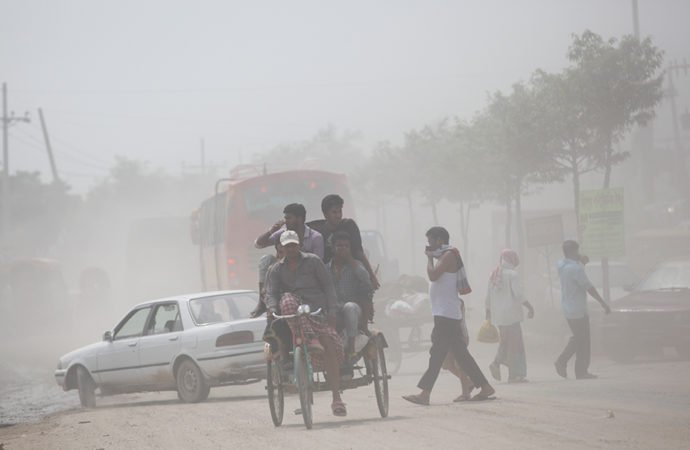Nine out of every 10 people on the planet breathe air that contains high levels of pollutants and kills 7 million people each year.
The air quality in Bangladesh has improved, according to a new study from the World Health Organization published on Wednesday.
Narayanganj ranked 33rd on the list of world cities with a score of 94 for PM2.5 levels, while Khulna ranked 51st with a score of 84 and Dhaka ranked 55th with a score of 82 in the PM2.5 levels.
PM2.5 are tiny but deadly air particles, which can increase the likelihood of respiratory and cardiovascular diseases.
Among other Bangladeshi cities, Gazipur ranked 58, Barishal 61, Chattogram 120, Sylhet 146, and Rajshahi ranked 364.
The Dhaka Tribune’s analysis of the study shows the Bihar’s Muzaffarpur tops the list of world cities with the highest PM2.5 levels. Muzaffarpur’s average PM2.5 level is 197, which is 17 times higher than the WHO’s safe limit. Fourteen Indian cities featured in a list of 20 most polluted cities in the world.
The study is an analysis of what the WHO says is the world’s most comprehensive database on ambient air pollution. The organization collected the data from more than 4,300 cities and 108 countries.
Nine out of every 10 people on the planet breathe air that contains high levels of pollutants and kills 7 million people each year, WHO said in their press release.
People in Asia and Africa face the biggest problems. More than 90% of air pollution-related deaths happen there, but cities in the Americas, Europe, and the Eastern Mediterranean also have air pollution levels that are beyond what the WHO considers healthy.
Bangladesh, one of the most densely-populated countries in the world, has been struggling with air pollution for a long time while Dhaka has continued to rank among the most polluted cities.
Brick kilns, vehicles run by fuels with higher level sulphur, as well as construction works have been identified as major sources of air pollution.
Air quality further declines during the dry months – from October to April – but improves in the monsoon.
The situation is very serious, experts say, pointing out that five of the top 10 causes of deaths in Bangladesh are related to air pollution.
Source: Dhaka Tribune.


